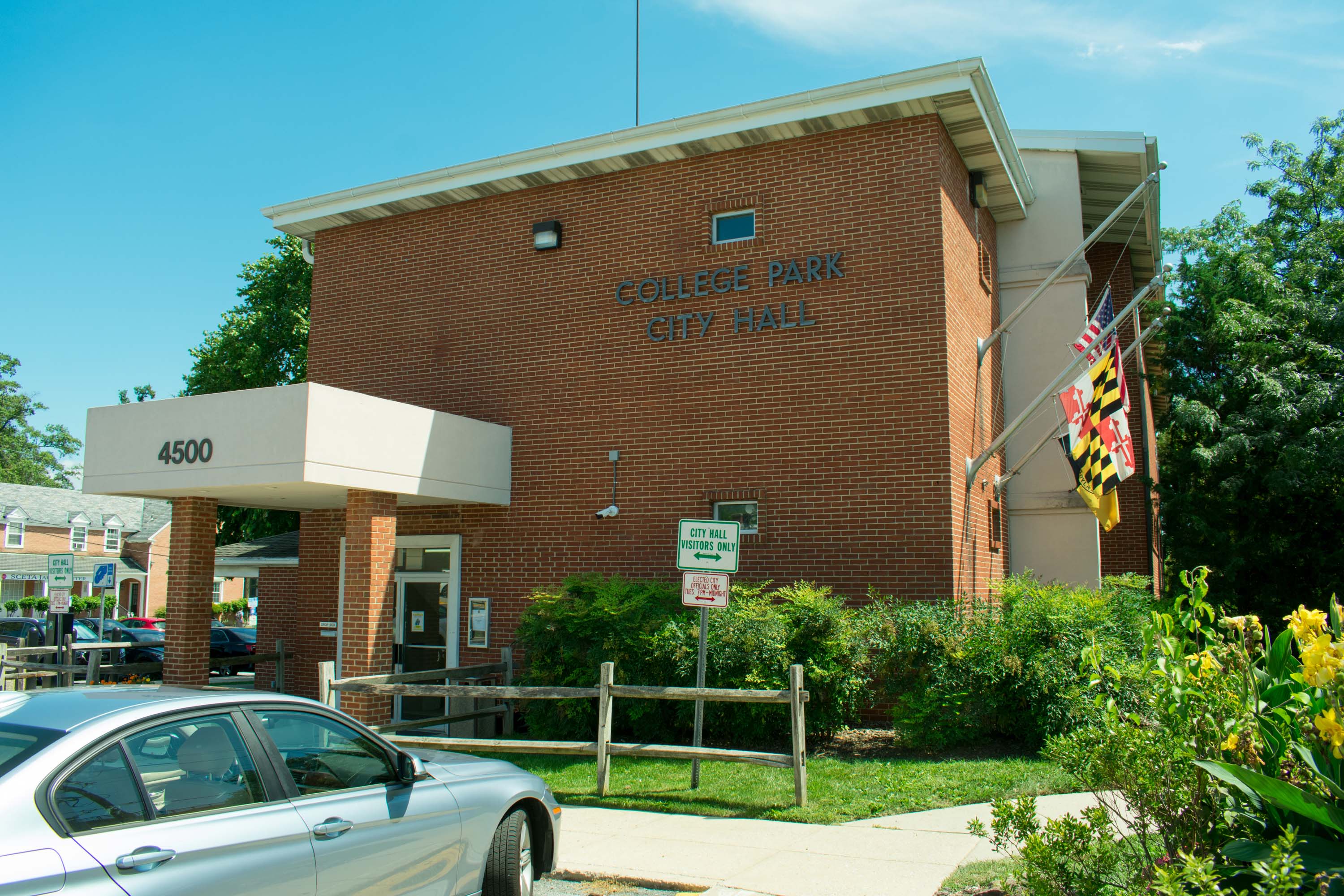College Park’s new City Hall is now projected to cost the city close to $20.5 million — $8 million more than the initial estimate.
The total cost of the redevelopment, which will be split between the city and the University of Maryland, shot up from about $30 million to close to $50 million.
The estimate increased with the most recent plan that Design Collective — the architecture firm working on the project — put together with construction management company James G. Davis Construction Corporation.
The cost increase is due to higher-than-expected labor and material costs, as well as a slightly increased square footage and other design changes, said Katie Hearn, senior vice president at Redgate, a real estate investment and advisory firm working as a consultant on the project.
“For a schematic design in a project like this, we’re always higher than the budget,” Hearn said. “That is very typical of this level of design.”
Hearn predicted that about $5 million could potentially be shaved off the total project cost with specific changes and adjustments, such as changing the heights of floors or including certain features, such as a water installation in the plaza.
[Read more: UMD’s College Park Scholars host technology workshop for city’s senior residents]
Adjustments like that would hopefully bring the city’s cost down from about $20.5 million to $18.5 million, city manager Scott Somers said. But District 2 councilman P.J. Brennan feared that some of those decisions might sacrifice design elements that are a good investment in the future.
“It’s not just about building a box and putting people in it,” Brennan said. “It’s about durability of the building.”
The council plans to discuss its thoughts on the new price and decide what direction to take with the project at their next meeting on April 23, Somers said.
The city hall renovation has been in the works for more than a decade, though the council first officially voted on its location in 2014. The building — which is expected to include municipal offices, university offices and retail space — is part of a larger redevelopment project of the entire block at the intersection of Knox Road and Route 1.
For the redevelopment, the city paid $1.6 million for two properties that are currently occupied by Shanghai Cafe and Subway. The leases on the other sites of the redevelopment, currently occupied by Smoothie King and Hair Cuttery, are due to expire at the end of this year.
While the cost is higher than initially estimated, Somers said the project is still financially in reach. A combination of different revenue sources such as grants, previously saved funds and contributions from the university could make up the difference.
“It’s not really a matter of the city not being able to pay for it,” he said. “We’re pretty confident we can get there.”
[Read more: Route 1 widening project to close lanes for the next year]
While officials hope the total cost to the city will be about $18.5 million, Somers suggested if the council increased the allotted out-of-pocket cost from about $12.5 million to $14.5 million, the remaining $4 million could be met using these other revenue sources.
Somers echoed Brennan’s sentiment, saying the council should balance its budget while still investing in a space prepared for the city’s growth.
“We don’t really know what the future holds,” he said. “We’re trying to build a building for 40 or 50 years, so we’re trying to be conservative, on one hand, without needing to build the Taj Mahal.”
During the estimated two-and-a-half year construction, most of the city’s municipal workers will move to the rented Artemesia Building, a university-owned space at 8400 Baltimore Avenue. City council meetings will be held in Davis Hall, which is in the Public Works building off Rhode Island Avenue.
The final cost of the project is expected to be known closer to the end of this year, Hearn said. The updated pricing information pushed the development schedule back slightly, but construction on the new city hall is still slated to begin in early 2020, Somers said.



